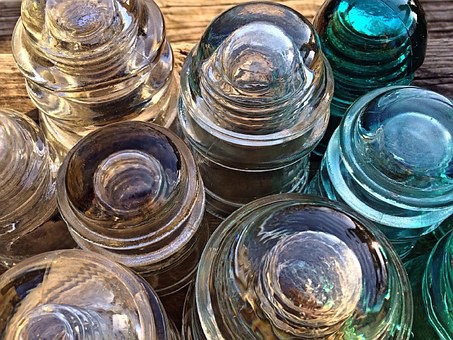George Washington graduate Archie Filshill founded AeroAggregates, a firm that plans to divert 12,000 tons of glass from curbside recycling bins in the Philadelphia area over the next year.

AeroAggregates, a glass-recycling firm founded by George Washington High School graduate Archie Filshill, last month held a ribbon-cutting ceremony, tour and demonstration.
The firm plans to divert 12,000 tons of glass from curbside recycling bins in the Philadelphia area over the next year. That equates to 55 million beer bottles.
AeroAggregates, which has a 100,000-square-foot factory in Eddystone, Delaware County, takes the glass and turns it into recycled construction material.
“One of the biggest challenges with recycling glass is that most recyclers require the glass cullet to be of a certain size and sorted by color. A large portion of the glass deposited in recycling bins never gets recycled because it doesn’t meet those requirements. What can’t be recycled ends up going to the landfill. Our process has no color sorting nor size requirements. We can use it all. Our goal is to recycle 100 percent of the glass cullet we get and turn it into ultra-lightweight aggregates that can be utilized right here in the Delaware Valley to build roads, bridges and buildings,” Filshill said.
Filshill, an adjunct professor at Temple University in the graduate engineering school, said only about 34 percent of glass bottles in the United States are actually recycled, according to statistics from the U.S. Environmental Protection Agency.
AeroAggregates works with local recycling companies that gather glass collected from curbside recycling bins. The company cleans the glass cullet (defined as recycled broken or waste glass), mills it into a powder and processes it through a kiln. While in the kiln, a foaming agent reacts and the glass powder forms into a cake. When the foam cake moves out of the kiln and hits the ambient air, the foamed glass shatters and breaks into individual aggregate pieces averaging one to two inches in diameter.
The work is done on a former brownfield site.
“Not only are we cleaning up the glass in the Delaware Valley, but we cleaned up the site where we work, creating a fully sustainable business model. We’re pretty proud of that,” Filshill said. ••




